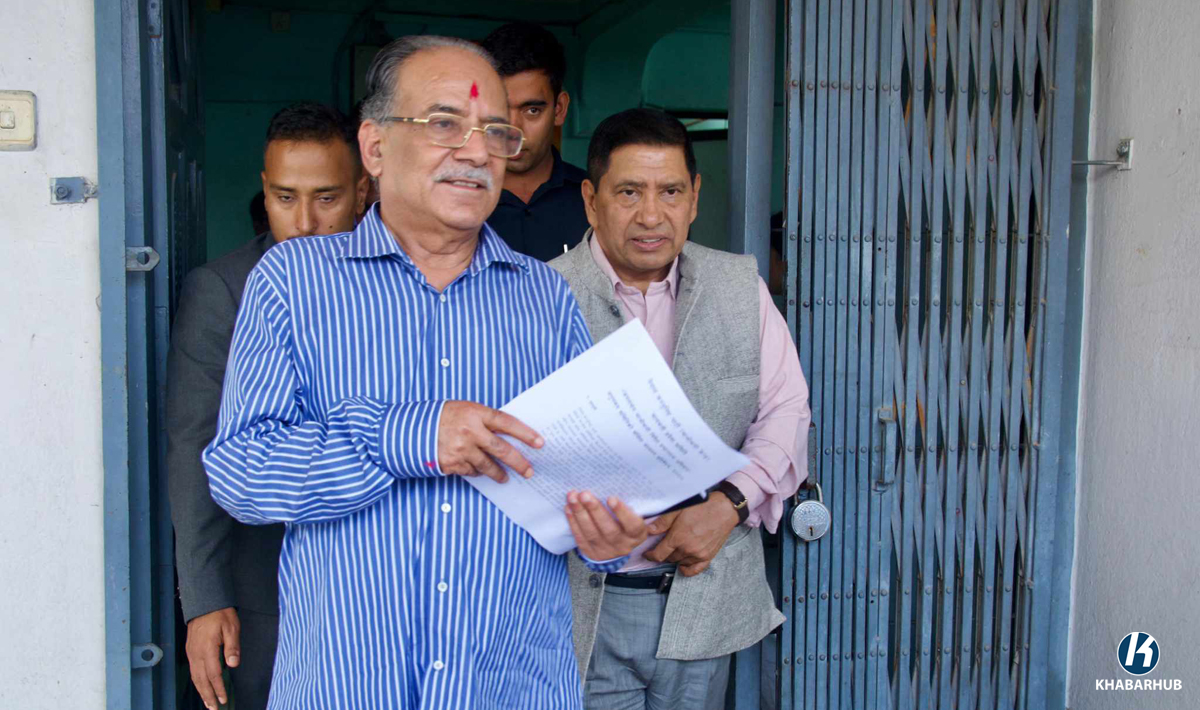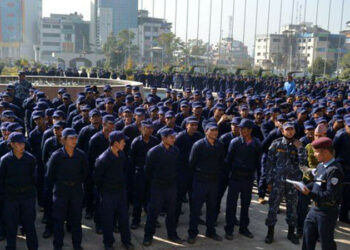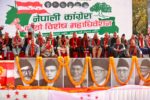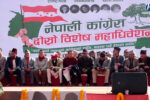KATHMANDU: The Maoist Center has determined that there is no immediate need to seek an alternative to party Chairman Pushpa Kamal Dahal Prachanda in navigating the current political situation.
The decision to back Pushpa Kamal Dahal Prachanda’s leadership without immediately seeking alternatives offers a compelling insight into the party’s internal strategy and its approach to the current political landscape.
This endorsement underscores the party’s emphasis on unity and stability during a period of significant political flux.
By rallying behind Prachanda, the Maoist Center aims to consolidate its position and ensure effective operations amidst ongoing challenges.
Party Vice Chairman Agni Sapkota’s statements from the Standing Committee meeting reveal a strong internal consensus on the necessity of Prachanda’s leadership for maintaining cohesion and navigating the complex political environment.
The context of proposed constitutional amendments by the ruling coalition adds another layer of significance to this decision.
As Chairman Dahal prepares a proposal based on the Standing Committee’s discussions, followed by its review by the Central Committee, the party’s methodical approach to strategic planning becomes evident.
The Maoist Center’s choice to fortify Prachanda’s role reflects a strategic response to these developments, signaling a commitment to countering potential threats and shaping its stance on constitutional changes.
This approach demonstrates an understanding that a stable leadership is crucial for formulating coherent strategies and maintaining a united front.
The meeting’s focus on democratic practices and centralization highlights the party’s efforts to balance internal democracy with effective decision-making.
The unanimous support among leaders for Prachanda’s continued leadership indicates a well-supported and unified stance, essential for the party’s ability to mobilize and implement its policies, according to Sapkota.
Moreover, the call for innovation, internal unity, and the development of special policies, including managing party workers and promoting economic self-sufficiency, points to a forward-looking strategy.
According to Sapkota, the Maoist Center is not merely aiming to preserve the status quo but is actively seeking to adapt and evolve its strategies in response to contemporary challenges.
As Chairman Dahal prepares a proposal based on the Standing Committee’s discussions, followed by its review by the Central Committee, the party’s methodical approach to strategic planning becomes evident.
The Maoist Center’s decision to reaffirm its support for Prachanda’s leadership highlights a strategic focus on internal unity and stability, a response to external pressures, and a commitment to evolving its policies and strategies.









Comment